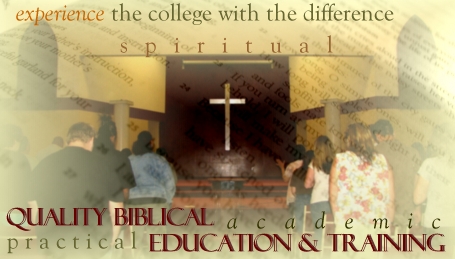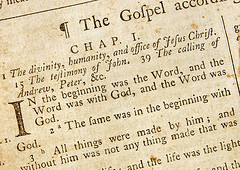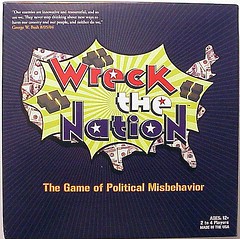
Gentle Reader,
Rather than start at Matthew, I plan to start in Mark’s gospel for several reason. First of all you must remember that when reading all of these gospels, you need to put yourself in the sandals of a first Century Christian. I mean you are stepping back and as it were "living history as it were today" only when you have an understanding of what these believers were holding on to in their faith , can you step up to whatever century your living in and then make an application to today's events.
You have heard it said "Well, that just your interpretation." Perhaps you have said it your self once or twice. But in fact and in reality there is only ONE Interpretation (and that is God’s) and many applications which while prove useful and truly make the Word of God living to each of us for any situation and circumstance. The problem still exists that we only can know ‘Truth" as far as our understanding can take us. So with that in mind. Let’s try to get a handle on, to start with the Book or Gospel of Mark.
I choose Mark for several reasons, 1) Mark is the shortest of the 4 gospels. 2) the Greek that is in Mark is clumsier and more awkward than used by the other evangelists. Augustine called Mark (pedisequus et breviator) "the drudge and condenser" of Matthew.
It was the least cited Gospel in the early Christian period. And if that was not enough, one of the most quoted parts of the Markan Gospel was a latter addition to it (the so called Markan Appendix) - the last 12 verses added to its ending.
We find the Matthew, Luke cite and use (and correct) Mark , but he does not do the same for them which would indicate the his is the first gospel setting a pattern for the others. Writing was difficult and a rare act- so difficult that "writers" dictated to scribes, who did the laborious inditing on papyrus.
This is why Paul "wrote" and his letters were written first to only 5 communities, under two conditions- that he had to be away from a community, and that the community needed his intervention in its internal conflicts.
We find that in Mark sets down the oral teachings that were important to his community and a part of an effort to remind and strengthen to console them in their discord under persecution. The repetition of his message was in the liturgies and debates of his fellows was his way of keeping Jesus present through the storms that these early Christians were going through.
Mark write to a local community and references that he uses have a special resonance to the people that he is addressing. There appears an intense almost obsessive focus on the community’s suffering. For example. We read in "But take heed to yourselves: for they shall deliver you up to councils; and in the synagogues ye shall be beaten: and ye shall be brought before rulers and kings for my sake, for a testimony against them. And the gospel must first be published among all nations. But when they shall lead you, and deliver you up, take no thought beforehand what ye shall speak, neither do ye premeditate: but whatsoever shall be given you in that hour, that speak ye: for it is not ye that speak, but the Holy Ghost. Now the brother shall betray the brother to death, and the father the son; and children shall rise up against their parents, and shall cause them to be put to death. And ye shall be hated of all men for my name's sake: but he that shall endure unto the end, the same shall be saved. But when ye shall see the abomination of desolation, spoken of by Daniel the prophet, standing where it ought not, (let him that readeth understand,) then let them that be in Judaea flee to the mountains: And let him that is on the housetop not go down into the house, neither enter therein, to take any thing out of his house: "
(Mar 13:9-15)
What Jesus predicted is (at the time of of the writing and reading) actually occurring in the community. Mark gives that away with these words " Mar 13:19 ‘ For in those days shall be affliction, such as was not from the beginning of the creation which God created unto this time, neither shall be."
This has often been taken to be a prediction of the "tribulation" of the END TIMES. But the clumsily inserted "until this time" (heos nym) indicate that Mark is applying the words of Jesus to the situation he and his brethren are sharing as he writes.
What Jesus predicts for His followers must first happen to Him. "Saying, Behold, we go up to Jerusalem; and the Son of man shall be delivered unto the chief priests, and unto the scribes; and they shall condemn him to death, and shall deliver him to the Gentiles: And they shall mock him, and shall scourge him, and shall spit upon him, and shall kill him: and the third day he shall rise again". (Mar 10:33-34).
Jesus says that brother will betray brother among his followers. His own family has first turned against Him "And when his friends heard of it, they went out to lay hold on him: for they said, He is beside himself. (Mar 3:21)
People in his home town say there must be something fake or sinister about Him. Is not this the carpenter, the son of Mary, the brother of James, and Joses, and of Juda, and Simon? and are not his sisters here with us? And they were offended at him. But Jesus said unto them, A prophet is not without honour, but in his own country, and among his own kin, and in his own house. And he could there do no mighty work, save that he laid his hands upon a few sick folk, and healed them. And he marvelled because of their unbelief. And he went round about the villages, teaching". (Mar 6:3-6)
According to Mark, Jesus supplies a model for those who must renounce their family in this 1st Century Christian community, if it stands in the way of the Revelation of who is Jesus Christ truly: " There came then his brethren and his mother, and, standing without, sent unto him, calling him. And the multitude sat about him, and they said unto him, Behold, thy mother and thy brethren without seek for thee. And he answered them, saying, Who is my mother, or my brethren? And he looked round about on them which sat about him, and said, Behold my mother and my brethren! For whosoever shall do the will of God, the same is my brother, and my sister, and mother". (Mar 3:31-35)
Mark connects the idea of family division with persecution (the situation in his community) that he uses persecution in an ironic answer when Peter asks what reward will he get for following Jesus: "And Jesus answered and said, Verily I say unto you, There is no man that hath left house, or brethren, or sisters, or father, or mother, or wife, or children, or lands, for my sake, and the gospel's, But he shall receive an hundredfold now in this time, houses, and brethren, and sisters, and mothers, and children, and lands, with persecutions; and in the world to come eternal life". (Mar 10:29-30) And Jesus connect his own suffering and those of His followers "And when he had called the people unto him with his disciples also, he said unto them, Whosoever will come after me, let him deny himself, and take up his cross, and follow me." (Mar 8:34) "But Jesus said unto them, Ye know not what ye ask: can ye drink of the cup that I drink of? and be baptized with the baptism that I am baptized with? (Mar 10:38 )
It is Jesus’ calm bearing under trial and torture and execution that Mark portrays as a model for his followers as they faced their own ordeals- as opposed to the desertion of Peter and others. He speaks of the need of people (brethren) to be rooted in the Gospel The revelation of Who Christ is, Lest "And have no root in themselves, and so endure but for a time: afterward, when affliction or persecution ariseth for the word's sake, immediately they are offended". (Mar 4:17)
Enough for now Gentle reader, I have given you much to think about in the light of what the first believers suffered and what was recorded in Mark. How does the prosperity gospel of today square with what Mark writes?
Love,
Denis

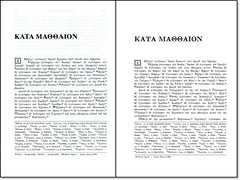
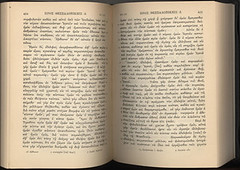
![OpenBible[1]](http://farm4.static.flickr.com/3180/2569502544_aef6083e22_o.jpg)

